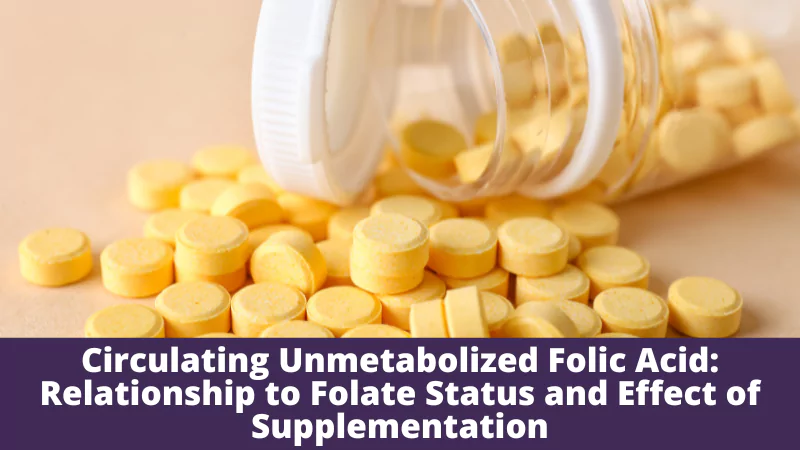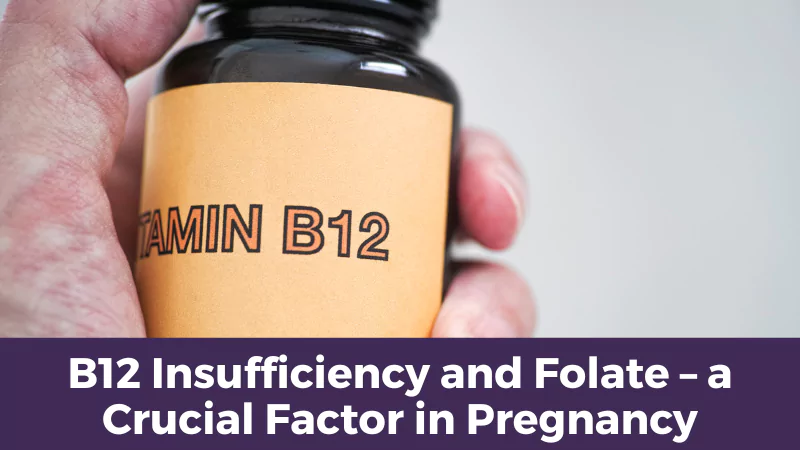Vitamin D is widely recognised for its role in bone health, but its impact on the immune system and thyroid health is often overlooked. Emerging research highlights the critical connection between vitamin D levels and autoimmune thyroid conditions, such as Hashimoto’s thyroiditis and Graves’ disease. Its importance is further amplified during pregnancy, where adequate vitamin D status is essential for both maternal and foetal health.
For practitioners, understanding how vitamin D influences thyroid function, immune regulation, and individual genetic factors can provide valuable insights into managing and preventing thyroid dysfunction.
Vitamin D: The Immune Regulator
Vitamin D functions as a hormone in the body, with receptors present in nearly all cells, including immune and thyroid cells. The active form, 1,25-dihydroxyvitamin D (calcitriol), modulates immune responses by:
- Suppressing pro-inflammatory cytokines: Reduces inflammation, a key driver in autoimmune thyroid conditions.
- Enhancing regulatory T-cell function: Prevents the immune system from attacking thyroid tissue.
- Supporting thyroid cell health: Protects against oxidative damage and inflammation in thyroid cells.
Low vitamin D levels are associated with an increased risk of autoimmune conditions, making it a critical factor in thyroid health.
Vitamin D and Autoimmune Thyroid Conditions
Hashimoto’s Thyroiditis
- Elevated Antibodies: Low vitamin D is strongly linked to increased thyroid peroxidase (TPO) and thyroglobulin (Tg) antibodies, which drive thyroid inflammation in Hashimoto’s.
- Impact on Inflammation: Inadequate vitamin D exacerbates immune dysregulation, leading to higher rates of hypothyroidism.
Graves’ Disease
- Hyperactive Immune Response: Low vitamin D levels may trigger an overactive immune system, contributing to the thyroid overstimulation seen in Graves’ disease.
- Thyroid Receptor Antibodies (TRAb): Vitamin D helps modulate the immune response, potentially reducing TRAb levels.
Clinical Evidence
- Studies consistently show that patients with autoimmune thyroid conditions have significantly lower vitamin D levels compared to healthy individuals.
- Supplementation with vitamin D has been shown to lower thyroid antibody levels and reduce the progression of autoimmune thyroid diseases.
Vitamin D and Thyroid Health in Pregnancy
Pregnancy presents unique challenges for thyroid health, and vitamin D plays a central role in supporting both maternal and foetal outcomes.
Impact on the Mother
- Thyroid Function: Pregnancy increases the demand for thyroid hormones. Low vitamin D can exacerbate hypothyroidism or contribute to postpartum thyroiditis.
- Immune Regulation: Vitamin D helps maintain a balanced immune system, preventing excessive inflammation that could harm the thyroid or lead to pregnancy complications.
Impact on the Foetus
- Neurological Development: Low maternal vitamin D levels are associated with impaired neurological development and lower IQ in children.
- Thyroid Development: Adequate vitamin D ensures proper thyroid gland development in the foetus.
Risks of Deficiency
- Deficiency during pregnancy is linked to higher rates of:
- Miscarriage
- Pre-eclampsia
- Preterm birth
- Postpartum thyroid dysfunction
Vitamin D Genomic SNPs That May Impact Vitamin D Status
Genetic variations, or single nucleotide polymorphisms (SNPs), can significantly affect an individual’s ability to synthesise, metabolise, and utilise vitamin D. For practitioners, understanding these SNPs can provide valuable insights into patients’ vitamin D needs and guide personalised interventions.
1. VDR (Vitamin D Receptor) SNPs
- Impact: Variants in the VDR gene can reduce the effectiveness of vitamin D binding to its receptor, impairing its biological activity.
- Clinical Significance:
- Patients with VDR polymorphisms may require higher vitamin D levels to achieve therapeutic effects.
- Associated with increased susceptibility to autoimmune conditions, including Hashimoto’s and Graves’ disease.
2. GC (Group-Specific Component) or DBP (Vitamin D Binding Protein) SNPs
- Impact: Variants in the GC gene affect the production and function of the vitamin D binding protein, which transports vitamin D in the bloodstream.
- Clinical Significance:
- Patients with GC SNPs may show normal serum vitamin D levels but have reduced bioavailability of active vitamin D.
- Common in populations with a high prevalence of vitamin D deficiency symptoms despite supplementation.
3. CYP2R1 (Vitamin D 25-Hydroxylase) SNPs
- Impact: The CYP2R1 gene is responsible for converting vitamin D from the skin or diet into its circulating form, 25-hydroxyvitamin D.
- Clinical Significance:
- Variants in CYP2R1 can lead to lower serum 25(OH)D levels, even with adequate sun exposure or dietary intake.
- May require higher supplementation doses to maintain optimal levels.
4. CYP27B1 (Vitamin D 1-Alpha-Hydroxylase) SNPs
- Impact: CYP27B1 converts 25(OH)D into its active form, 1,25-dihydroxyvitamin D, in the kidneys and other tissues.
- Clinical Significance:
- SNPs in CYP27B1 may impair the activation of vitamin D, reducing its immune-regulating effects.
5. CYP24A1 (Vitamin D 24-Hydroxylase) SNPs
- Impact: This gene deactivates vitamin D by converting active 1,25(OH)2D to an inactive form.
- Clinical Significance:
- Variants can lead to faster breakdown of active vitamin D, resulting in suboptimal levels despite supplementation.
How to Assess and Optimise Vitamin D Levels
Testing
- Test for 25-hydroxyvitamin D (25[OH]D), the primary circulating form of vitamin D.
- Optimal Range: 100–150 nmol/L for autoimmune and thyroid health. Levels below 75 nmol/L are considered insufficient.
Supplementation Guidelines
- For Autoimmune Thyroid Patients:
- 2,000–5,000 IU/day, based on deficiency severity.
- Retest levels after 8–12 weeks of supplementation.
- During Pregnancy:
- 4,000 IU/day is considered safe and effective for improving pregnancy outcomes and reducing thyroid dysfunction risks.
- Ensure adequate magnesium and vitamin K2 intake to support vitamin D metabolism.
Sunlight and Food Sources
- Sunlight: Encourage 10–30 minutes of sun exposure on the skin (without sunscreen) several times a week.
- Food Sources:
- Fatty fish (salmon, mackerel)
- Egg yolks
- Fortified foods (e.g., dairy, cereals)
Clinical Strategies for Practitioners
- Routine Testing
- Include vitamin D testing in thyroid assessments, particularly for patients with autoimmune thyroid conditions or those planning a pregnancy.
- Address the Root Causes of Deficiency
- Investigate factors contributing to low vitamin D levels, such as poor gut absorption, chronic inflammation, or inadequate sun exposure.
- Monitor Immune and Thyroid Markers
- Track changes in TPO and Tg antibodies alongside vitamin D levels to evaluate the effectiveness of supplementation.
- Holistic Approach
- Combine vitamin D support with selenium, zinc, and omega-3 fatty acids to further reduce thyroid inflammation.
Key Takeaways for Practitioners
- Vitamin D is a critical nutrient for immune regulation and thyroid health.
- Deficiency is common in patients with autoimmune thyroid conditions and can worsen inflammation and antibody production.
- During pregnancy, vitamin D plays a vital role in supporting maternal thyroid function and foetal development.
- Genomic SNPs, such as VDR, GC, CYP2R1, CYP27B1, and CYP24A1, may influence vitamin D status and guide personalised care.
- Regular testing, appropriate supplementation, and dietary optimisation can significantly improve thyroid health outcomes.
By prioritising vitamin D assessment and management, practitioners can make a meaningful impact on their patients’ thyroid health and overall well-being.










